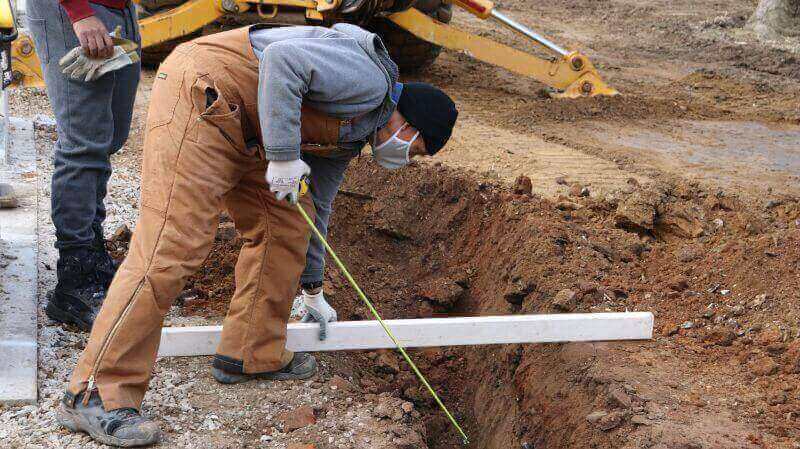Cement masons build concrete columns, walkways, panels, and other structures. By signing up for cement mason training, one can successfully pursue a career in this field. In addition, they immediately report to building site supervisors and collaborate with other concrete masons. Indeed, cement mason training could greatly help the journey ahead.
Concrete masons are also responsible for assessing constructions or regions, installing reinforcing elements such as beams, and laying aggregates. Their professional duties include pouring, distributing, and shaping concrete to specified requirements.
Learners in high schools must take construction programs that emphasise measurement and budgeting abilities, such as architecture workshops or trade programs. A reputable concrete training institute can help you choose a desirable course. In addition, it is necessary to be familiar with heavy machinery, power drills, and material processing equipment. While high school courses do not count as credit in the internship program, they help develop skills. Therefore, if you are looking for a masonry school in Philadelphia, you must enquire about Apprenticeship Programs in concrete and masonry
The official qualifications for this cement mason training profession are a secondary school degree and the accomplishment of an internship or equivalent training program. Managers believe cement masons understand everything to do because of their past training. Thus, most join the Mansonry school to get practical, hands-on experience in the construction industry with no job experience.
Because this job is physically demanding, anyone who wants to become a cement mason should be physically healthy. They should be capable enough to lift enormous weights, stand for extended periods, and conduct repetitive actions. Today, numerous masonry trade schools are willing to assist passionate students.
Several cement masons require specific abilities to carry out their tasks. An observation said colored vision, agility, and physical strength are frequently needed. Trainees work with professional materials and equipment while learning finishing, construction, and safety protocols over several years of schooling. This can be achieved through an apprenticeship program in the construction field.
Trainees can attend cement mason training when working in the workplace. Even during the school year, they should attend at least 146 hours of instructional education. Young workers learn drafting, arithmetic, and fundamental science in such sessions.
The research states regulations and knows how to calculate material prices. They also learn to interpret blueprints. Several cement masons master their trade with the help of experienced masons.

Cement masons must have manual agility, spatial sense, and the ability to determine size and proportions. Because the profession is highly physical, it demands healthy people with much stamina. Concrete masons should prepare to relocate to get work. Part-time jobs that require hand-eye coordination and math can help prepare high school students to become concrete masons.
Many people look for a particular term or keyword when looking for employment. Instead, search by industry to see whether you’re missing out on jobs that match the concrete mason job description. A majority of concrete masons work in the industrial and professional sectors.
To work professionally as a concrete mason, consider what kind of education you need. Choosing a proper major is often a crucial step when exploring how to pursue a career as a concrete mason. You might realise that previous work experience can assist you in becoming a professional cement mason.
Several concrete mason positions require formal training as a cement finisher. A Cement Masonry training program can help you gain all the necessary skills to bloom your career path.
Nonetheless, many concrete masons have prior work experience as bookkeepers or carpenters. Federal analysts say concrete masons and cement finishers expect to diversify significantly quicker than the median for all vocations until 2020. Workers must work on future initiatives like highways and skyscrapers, as well as maintain old infrastructure.
In addition, new concrete structures are being constructed in locations such as Florida to withstand storms. Therefore, consider learning masonry an essential step toward your Construction Career Path.
Unfortunately, if the industry drops, finding work will be more challenging. Attending masonry courses at a trade college may improve your career prospects. Those eager to work as a concrete mason can enquire about apprenticeship programs at a local company or union headquarters and upgrade your construction career path
Another excellent approach to getting information and expertise is to help concrete masons on a building site. Cement masonry schools are available at several technical and vocational schools. Indeed, you must consider joining reputable construction schools in Philadelphia today!
Read More: